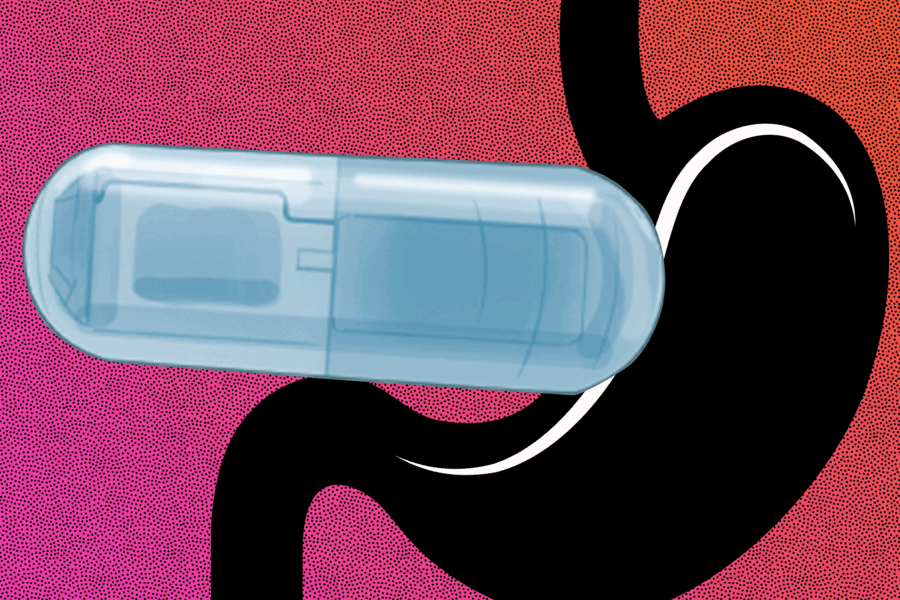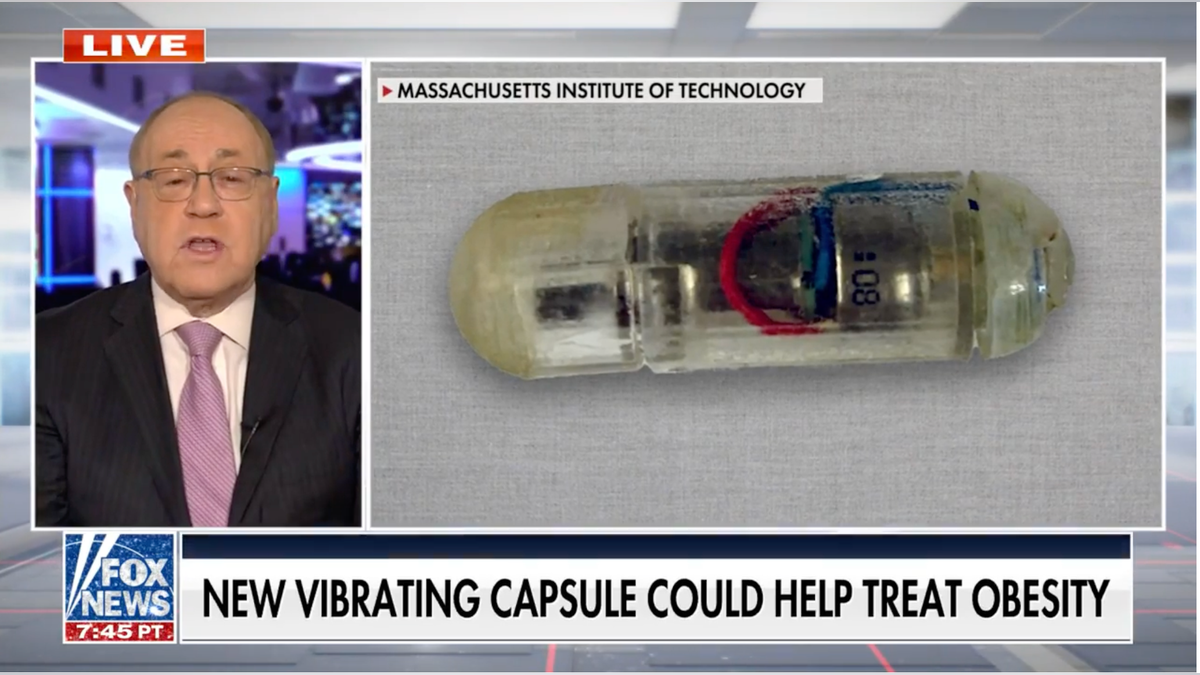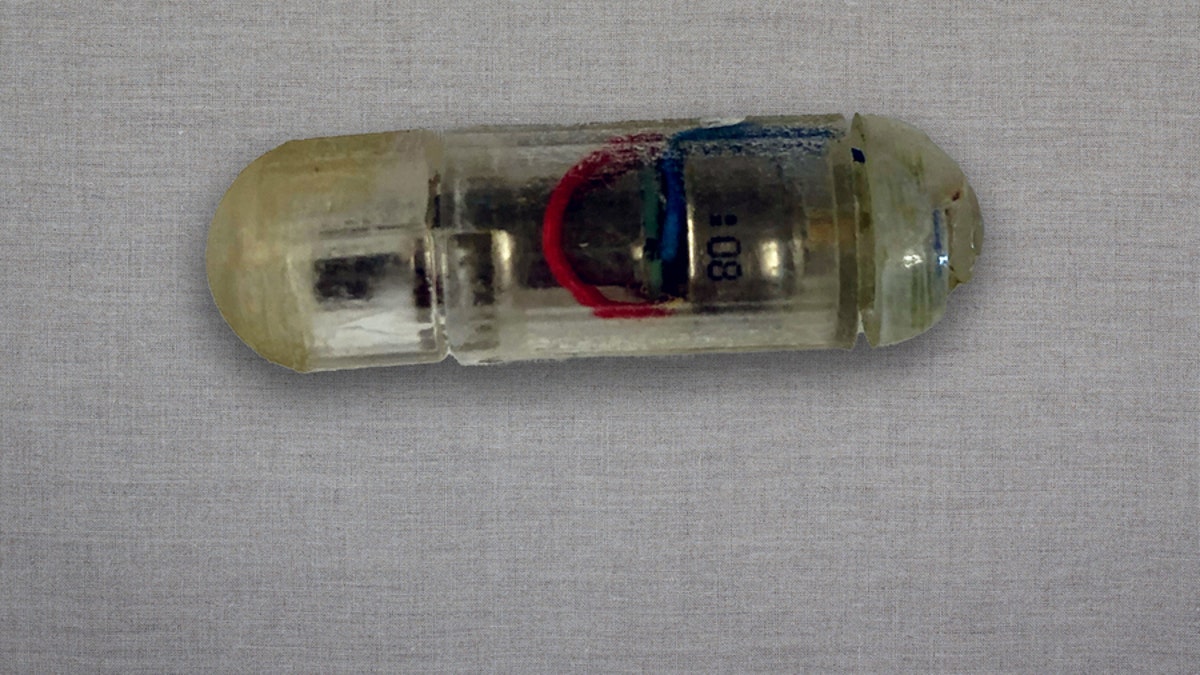Study finds vibrating pill can reduce food intake by 40%
Fox News contributor Dr. Marc Siegel says the pill stays in the stomach for four to five days and utilizes AI.
A vibrating pill has shown promise in early studies as a possible obesity treatment.
Developed by engineers at MIT (Massachusetts Institute of Technology), the capsule is intended to be swallowed prior to eating in order to "trick" the brain into thinking the body is full — thereby reducing the amount of calories consumed.
The vibrations activate the "stretch receptors" that detect satiety after eating, sending a signal to the brain that the stomach is full even if it’s not.
In a study published in the journal Science Advances on Dec. 22, researchers revealed that animals who swallowed the pill 20 minutes before eating consumed 40% less food than those who weren’t given the pill, according to a press release from MIT.
They also gained weight more slowly.

A new vibrating pill developed by MIT engineers could soon serve as an alternative to treating obesity. (Courtesy of researchers, MIT News)
"For somebody who wants to lose weight or control their appetite, it could be taken before each meal," said lead author Shriya Srinivasan, PhD, a former MIT graduate student who is now an assistant professor of bioengineering at Harvard University, in the press release.
"This could be really interesting in that it would provide an option that could minimize the side effects that we see with the other pharmacological treatments out there," she also said.
The capsule, which is about the size of a multivitamin, includes a small oxide battery.
After it’s swallowed, stomach acids dissolve the casing of the pill and the vibrating motor is activated.
The vibrations then activate the receptors that stimulate the vagus nerve, which sends a signal of fullness to the brain.
In the animal study, this triggered the production of insulin as well as the same hormones that are created after eating to a state of fullness. It also reduced levels of ghrelin, the hormone that creates feelings of hunger.

"The key is that it's going to be a smart pill that AI can regulate and can send signals back to a computer that are then analyzed, to try to figure out how much to make it vibrate," Dr. Marc Siegel (shown above) said. (Fox News)
"We have the potential to overcome some of the challenges and costs associated with delivery of biologic drugs by modulating the enteric nervous system," said senior author Giovanni Traverso, an associate professor of mechanical engineering at MIT and a gastroenterologist at Brigham and Women’s Hospital, in the release.
The hope is that the vibrating pill could one day serve as an alternative to other approaches — including invasive surgeries and expensive injectable medications — for people who don’t have success in controlling obesity through diet and exercise, doctors say.
Approximately 30.7% of U.S. adults are overweight and 42.4% are obese.
"For a lot of populations, some of the more effective therapies for obesity are very costly. At scale, our device could be manufactured at a pretty cost-effective price point," said Srinivasan.
"I’d love to see how this would transform care and therapy for people in global health settings who may not have access to some of the more sophisticated or expensive options that are available today."
The researchers aim to test the capsules in human clinical trials in 2024.
Fox News Digital reached out to the MIT researchers for additional comment.

The capsule, which is about the size of a multivitamin, includes a small oxide battery. After it’s swallowed, stomach acids dissolve the casing of the pill and the vibrating motor is activated. (Courtesy of researchers, MIT News)
Dr. Marc Siegel, clinical professor of medicine at NYU Langone Medical Center and a Fox News medical contributor, joined "America’s Newsroom" on Dec. 29 to share his thoughts about the capsule, which he called "fascinating."
"The key is that it's going to be a smart pill that AI can regulate and can send signals back to a computer that are then analyzed, to try to figure out how much to make it vibrate," Siegel said on the Fox News program.
WHAT IS ARTIFICIAL INTELLIGENCE (AI)?
"It stays in your stomach for four to five days and then it passes and you could replace it with another one."
Siegel compared the pill to injectable semaglutides such as Wegovy and Ozempic.
"Those medications also slow emptying of the stomach and actually have the same effect, but they also improve insulin and glucose management and they stop your brain from wanting to eat," he said.

Obesity can increase the risk of stroke, heart disease, high blood pressure, diabetes and even cancer, according to medical experts. (iStock)
Given those extra benefits, Siegel said that Ozempic and Wegovy have a "metabolic advantage" over the vibrating pill, but noted that not everyone can tolerate those medications due to side effects.
"This could very well be an alternative," he said. "I think it’s exciting and I think it’s on the road to smart pill technology for 2024."
CLICK HERE TO GET THE FOX NEWS APP
In the U.S., approximately 30.7% of U.S. adults are overweight, 42.4% are obese and 9.2% have severe obesity, according to the National Institutes of Health.
"If you gain weight, [it] increases the risk of stroke, heart disease, high blood pressure, diabetes and even cancer," Siegel told Fox News.
CLICK HERE TO SIGN UP FOR OUR HEALTH NEWSLETTER
"Those are huge reasons to get people exercising, eating right and getting the weight off."











































